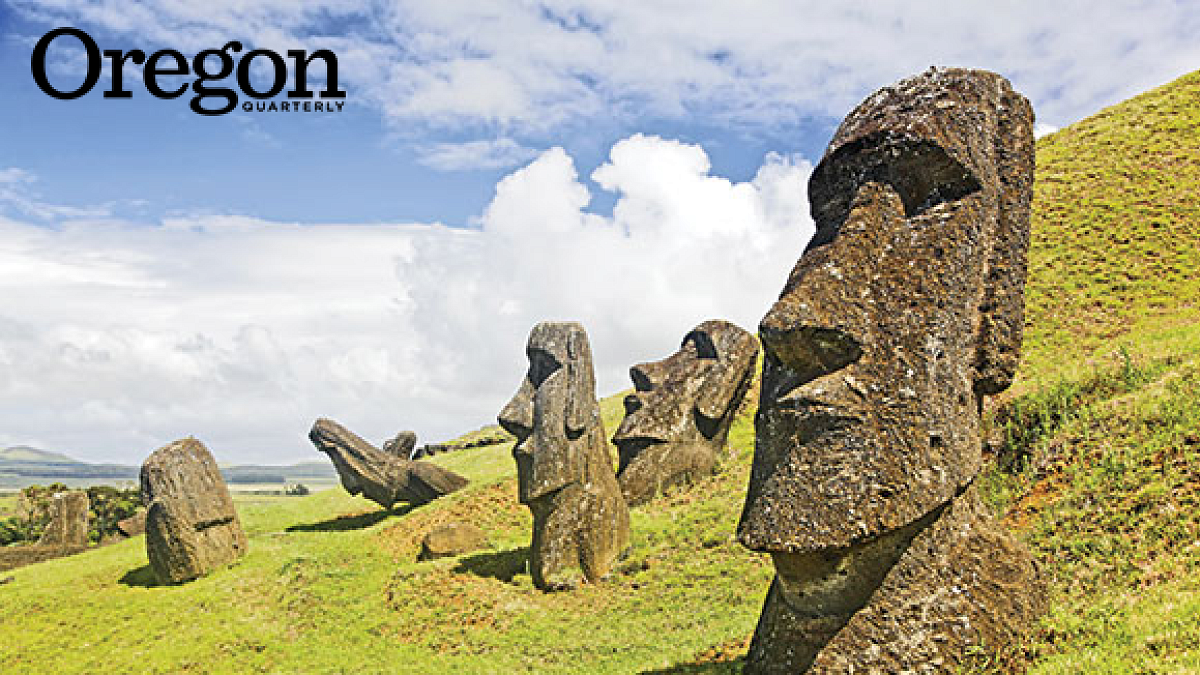Art of Smoke
With their competitive barbecue team Pork-N-Stein, Jerry Rosiek and Scott Pratt get creative, experiment with culinary science, and bring faculty members together for food and fun. Here are some of their smokin’ pointers to get you to the head of barbecuing class—even without an expensive rig.
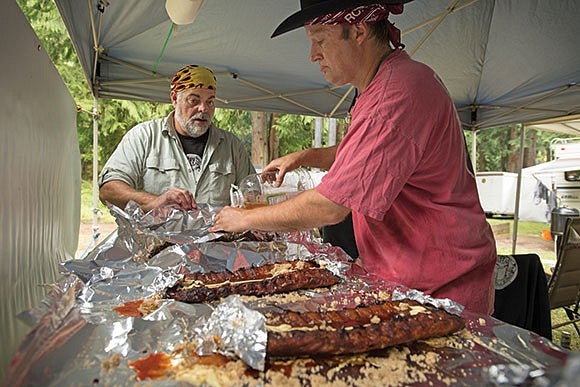
’QUE TIPS
Grilling—cooking with direct heat, using briquettes and high temperatures—is great for burgers. It is not real barbecue, which uses lower temperatures, indirect heat, and wood smoke to slowly cook larger cuts of meat, such as brisket or pork shoulder.
Use real wood or “lump” charcoal (identifiable by uneven shapes that look like chunks of wood). Add wood chips soaked in water for more smoke flavor.
Never use lighter fluid. Instead, try a charcoal chimney to fire up those coals.
Keep the coals away from the meat.
Invest in a good meat thermometer.
Wait until the meat’s done to add sauce. But while you’re waiting, create your own sauce recipe by combining these four elements: sweet, sour, smoky, and spice. Start with jam, then add lemon, lime, vinegar, or mustard. Try some smoked paprika or salt. Finally, add pepper.
Take notes on your experiments.
PITMASTER JARGON
Pack a flavor punch with a rub: a combination of sweet, salty, savory, and spicy powders rubbed onto the meat within an hour before cooking.
Injection: broth, juice, and fat—no salt—that is infused before cooking.
Brush on a “mop”—a baste of spices, juice, vinegar, and broth—sparingly while cooking (be careful not to wash off the rub).
McCoy’s Bach Fest Five

In addition to Frisbees, flip-flops, and floating on the Willamette, summer on campus means the Oregon Bach Festival, led by virtuoso artistic director Matthew Halls. This year, the buzz centers on the opening performance of the St. Matthew Passion—including a free celebration prior to the event—and the closer, Beethoven’s Missa Solemnis. In between those impressive bookends are some real gems, says Janelle McCoy, the executive director of the world-renowned classical music festival. Here, in her own words, are five not to miss.
[Re]Discovery Series Part I: St. John Passion
July 5, 7:00 p.m., Beall Concert Hall
“Here, you can get a little deeper into the music. The [Re]Discovery Series offers an informal discussion, performance, and insights into one of Bach’s most profound works.”
All-Bach Organ Recital with Paul Jacobs
July 6, 7:00 p.m., Central Lutheran Church
“The genius of Bach, the superb acoustics of Central Lutheran, and a magnificent instrument created by Eugene’s own master organ-builder, John Brombaugh—a trifecta for any music lover.”
Handel’s Hercules
July 8, 7:00 p.m., Hult Center for the Performing Arts
“Featuring jealousy, death, and madness, Handel’s Hercules is hotter than any summer romance novel—and our chorus will give you chills.”
Tavener’s The Protecting Veil and Howells’ Requiem
July 9, 3:00 p.m., Beall Concert Hall
“The strains of carefully balanced acapella voices and the virtuosity of cello soloist Andrew Yee will highlight this concert. This is music of reverence and reflection . . . breathtaking.”
On Ensemble (above)
July 14, 7:00 p.m., Hult Center for the Performing Arts
“What’s summer in Eugene without energetic drummers? These artists blend taiko drumming with jazz, rock, and even Asian overtone singing to create a neofusion, sensory experience.”
Plus, Family-Friendly Options
“Beethoven’s Wig” on Saturday, July 1, Taiko Adventure with On Ensemble on Saturday July 15, and Stangeland Family Youth Choral Academy’s 20th anniversary concert on Tuesday, July 11.
Grilling? Thank a Duck
This summer, while you sip a cool drink on the deck and wait for your grill's coals to gray over, you can thank a UO Duck for their invention.
While conflicting reports still fuel heated debates about who invented the charcoal briquette, history is clear about one thing: In 1923, UO Chemistry Professor Orin Stafford patented the manufacturing method that eventually made outdoor grilling popular in the US.
Henry Ford began producing briquettes in 1920 as a way to use leftover wood scraps and sawdust (a Model T contained about 100 board feet of lumber). He produced a lot of charcoal with Stafford’s patented technique, but outdoor grilling didn’t take off until after WWII, thanks to growing suburbs, the invention of the Weber grill, and the end of the Depression-era stigma about cooking outdoors.
“It was an early form of green chemistry,” says Jim Hutchison, BS ’86, the UO’s Lokey-Harrington Chair in Chemistry. “Stafford found a way to repurpose a material that otherwise would have been waste.”
Read Like a President
Here are five books that are on my nightstand (or Kindle) for this summer:
Cents and Sensibility: What Economics Can Learn from the Humanities—Gary Saul Morson and Morton Schapiro (2017)
The president of Northwestern University (an economist) and a humanist colleague suggest ways in which economic analysis can be enriched by a deep understanding of the humanities. The most interesting scholarship is often at the intersection of different fields.
The Genome Factor: What the Social Genomics Revolution Reveals about Ourselves, Our History, and the Future—Dalton Conley and Jason Fletcher (2017)
Two sociologists examine how insights from genomics can transform our understanding of the social sciences.
Evicted: Poverty and Profit in the American City—Matthew Desmond (2016)
I am looking forward to returning to my field of scholarship—housing—by reading this National Book Award winner. I have a feeling I will disagree with a lot of what it says, but that will make reading it even more fun and rewarding.
The Driver in the Driverless Car: How Our Technology Choices Will Create the Future—Vivek Wadhwa and Alex Salkever (2017)
As we build the Knight Campus, I need to start learning more about how technology will shape our future.
TV (The Book): Two Experts Pick the Greatest American Shows of All Time—Alan Sepinwall and Matt Zoller Seitz (2016)
We all have guilty pleasures. Mine is that I am a fan of television. In fact, I used to be a TiVo beta tester. This book is a fun journey down memory lane.
—Michael Schill, President, University of Oregon
Travel Like an Anthropologist
Terry Hunt, dean of the Robert D. Clark Honors College and professor of anthropology, has conducted field research in the Pacific Islands for more than three decades—including more than 25 trips to remote Rapa Nui (Easter Island). Traveling by jet, Jeep, horseback, and foot, he’s picked up some travel wisdom helpful to anyone planning a sojourn to Rapa Nui or a similarly exotic destination.
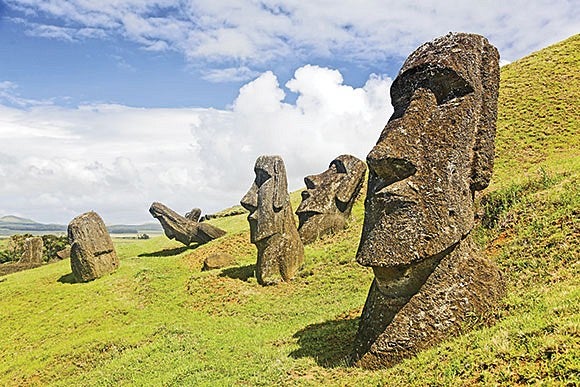
How to Pack for Easter Island
- Arrive early at the airport. Hunt, a self-described nervous flyer, says showing up ahead of time allows him to relax. Being calm also helps customs go smoothly, which is important when you’re declaring a quadcopter drone.
- Layer up. Conditions on Rapa Nui change quickly.
- Spiff up. Nice clothes help you blend in at local events. To smooth out wrinkles without an iron, spray your outfit with water and hang it out to dry.
- Don’t skimp on essentials. Bring a waterproof—that’s proof, not resistant—jacket. Also, solid boots, high SPF sunscreen, good coffee, and a Rite in the Rain notebook.
- Don’t squint, don’t scrimp. Buy the best quality sunglasses you can afford. They’ll protect your eyes and you’re less likely to lose them.
- Bag it. A dive bag will protect your camera from rain.
- Collaborate to pack light. Share a coffee press, bring one first-aid kit for the group.
- Prevention works. Ginger candy helps deter motion sickness.
- Anticipate the unexpected. It will happen.
- Avoid assumptions about new cultures. When in doubt, slow down, be warm, and listen.
World Class
GlobalWorks International interns don’t go to summer school: they live their education.
For some lucky Ducks, summer means overseas adventures—all the sights, sounds, challenges, and triumphs of traveling alone and living in a foreign country. They blow right past their comfort zones, learn a language by using it, and immerse themselves in a different culture. All while gaining real-world experience from service learning projects and professional internships.
The UO’s Office of International Affairs started Global-Works last summer, working with international alumni to network with overseas businesses and organizations. We caught up with three students who are looking forward to expanding their horizons.
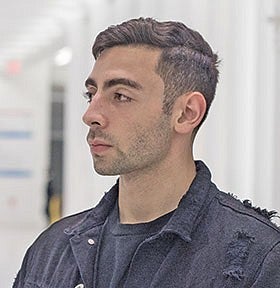
Senior, Business
Destination: Tokyo, Japan
Internship: Video editing, photography, and special events for TokyoDex, a boutique creative and marketing agency
“This is a once-in-a-lifetime opportunity at the perfect time. Visiting Tokyo would be amazing, but actually living and working there takes it to a whole new level. Being immersed in the environment, interacting with people, seeing the architecture, and learning the language—you can’t just read about it. You have to be there.”
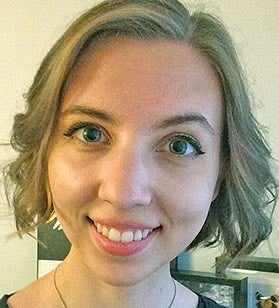
Senior, Digital Arts
Destination: Tokyo, Japan
Internship: Producing animated videos and designing publications for GnoKids, a company that teaches English to Japanese children
“This is the first time I’ve visited another country, so I’m excited. I hope to learn some new things while I build up my portfolio and my résumé for the career I’ve always wanted in design and digital arts.”
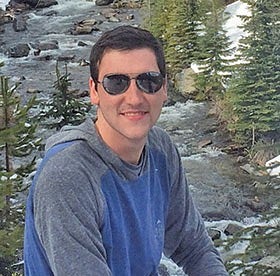
Senior, Business
Destination: Phnom Penh, Cambodia
Internship: Helping local Cambodian
businesses grow and develop through a project led by Ubelong, an international volunteer organization.
“I’m going to be helping small businesses with loans and bookkeeping—microfinance. I get to help people while gaining professional experience, as well as an understanding of a different culture.”


